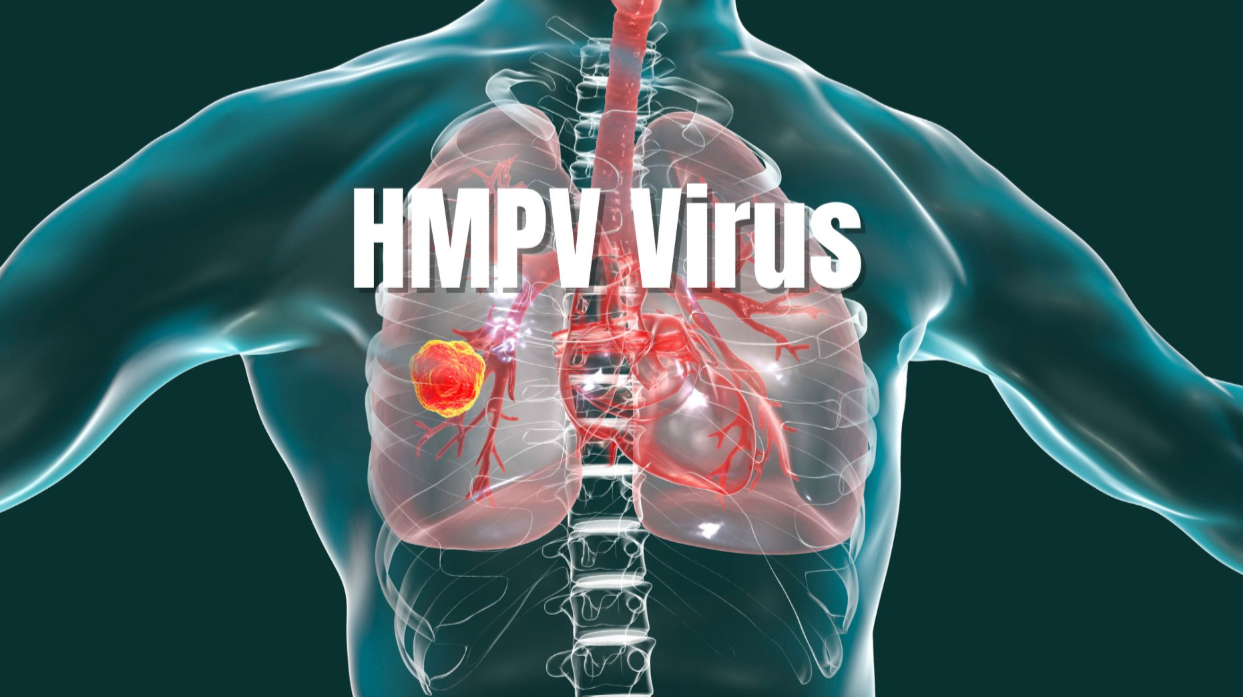
HMPV Virus in India: Precautions You Need to Follow
India has recently reported the detection of two cases of Human Metapneumovirus (HMPV) in Karnataka. While the virus has only affected a few individuals so far, the health ministry has issued warnings and guidelines to prevent its spread. HMPV, which causes respiratory infections, shares similarities with other viruses such as the flu and Respiratory Syncytial Virus (RSV). Although these cases are isolated, the public should be aware of the potential risks and follow essential preventive measures to keep the virus from spreading further.
What is HMPV Virus ?
Human Metapneumovirus (HMPV) is a virus belonging to the Paramyxoviridae family. First identified in 2001, HMPV primarily infects the upper respiratory tract and the lungs, leading to mild to severe respiratory issues. Infected individuals may present with cold-like symptoms such as a runny nose, sore throat, cough, headache, and fever. In some cases, particularly among young children, the elderly, or those with compromised immune systems, it can escalate into more serious illnesses such as pneumonia, bronchiolitis, and wheezing.
HMPV spreads through respiratory droplets that are released when an infected person coughs, sneezes, or talks. The virus can also survive on surfaces for a short period, making it possible to catch the infection from contaminated objects. It is crucial to be cautious and take steps to reduce exposure, especially in crowded areas.
Key Precautions to Follow
With the potential for HMPV to spread, it is essential for the public to take several steps to prevent the virus’s transmission. While the cases in India remain limited, adopting these precautions can help reduce further outbreaks.
1. Practice Good Hygiene
The first line of defense against any viral infection, including HMPV, is maintaining good hygiene. Make it a habit to wash your hands frequently with soap and water for at least 20 seconds, especially after touching potentially contaminated surfaces or coughing and sneezing. If soap and water are unavailable, use an alcohol-based hand sanitizer with at least 60% alcohol. Avoid touching your face, particularly your eyes, nose, and mouth, as these are the most common entry points for the virus.
2. Avoid Close Contact with Infected Individuals
Since HMPV spreads easily through respiratory droplets, it is crucial to avoid physical contact with people who show symptoms of respiratory infections, such as coughing and sneezing. If someone in your household is ill, minimize close contact and encourage them to stay home until they recover. If you are taking care of someone who is infected, use protective gear, such as masks, and disinfect frequently touched surfaces regularly.
3. Wear Masks
Wearing a mask can be an effective method to reduce the transmission of respiratory viruses. Masks can trap droplets released when coughing or sneezing, preventing them from reaching others. In crowded public spaces, such as markets, transport hubs, and hospitals, wearing a mask is essential, even if you are not showing symptoms. It acts as a preventive barrier, especially in areas with higher risks of exposure.
4. Cover Your Mouth and Nose When Coughing or Sneezing
Always cover your mouth and nose when coughing or sneezing—preferably with a tissue or the inside of your elbow. This reduces the spread of respiratory droplets, which can carry the virus. Dispose of tissues immediately after use and wash your hands thoroughly. It is a simple but effective way to prevent infecting others.
5. Disinfect Frequently Touched Surfaces
Viruses like HMPV can survive on surfaces for varying amounts of time. Regularly disinfect high-touch areas, such as doorknobs, remote controls, light switches, smartphones, and countertops, to reduce the likelihood of coming into contact with the virus. Regular cleaning is a key practice in preventing the virus from spreading in your home or workplace.
6. Stay Home When Sick
If you’re feeling unwell, especially with symptoms like fever, sore throat, or difficulty breathing, stay at home and rest. Avoid going to work, school, or public gatherings, as this could spread the virus to others. Getting adequate rest is essential for recovery and helps prevent the infection from worsening. If symptoms persist or worsen, seek medical advice promptly.
7. Seek Medical Attention Early
If you experience severe symptoms such as persistent cough, shortness of breath, chest pain, or wheezing, it is important to seek medical attention immediately. Early diagnosis and treatment can prevent complications, especially in high-risk individuals such as young children, the elderly, and those with pre-existing health conditions. Healthcare professionals can guide you on the best course of action for treatment.
8. Boost Your Immune System
Strengthening your immune system is crucial in fighting off infections. A healthy diet rich in vitamins and minerals, along with adequate sleep, regular exercise, and proper hydration, can help keep your immune system strong. Consider incorporating vitamin C-rich foods, such as citrus fruits, leafy greens, and berries, to support immunity. Avoid excessive stress, as it can weaken your immune system and make you more susceptible to infections.
Why These Precautions Matter
Although HMPV infections are not as widespread as other respiratory viruses, they can still lead to serious health complications, particularly in vulnerable populations. Following these precautionary measures not only protects you but also helps keep your family, friends, and the community safe. With seasonal changes often leading to a rise in respiratory infections, health experts are emphasizing vigilance and preventive actions. By maintaining hygiene, avoiding crowded areas, wearing masks, and practicing responsible behaviors, we can reduce the likelihood of a larger outbreak.
Conclusion
The detection of HMPV cases in India serves as a reminder to stay informed and cautious about emerging viruses. While HMPV typically causes mild symptoms, it can escalate into more severe conditions for vulnerable individuals. By adopting the recommended precautions, such as good hygiene practices, avoiding contact with infected individuals, and seeking medical attention when necessary, we can reduce the spread of HMPV and keep the situation under control. While there is no vaccine for HMPV at this time, following simple measures like wearing masks and disinfecting surfaces can go a long way in preventing the virus from spreading.





